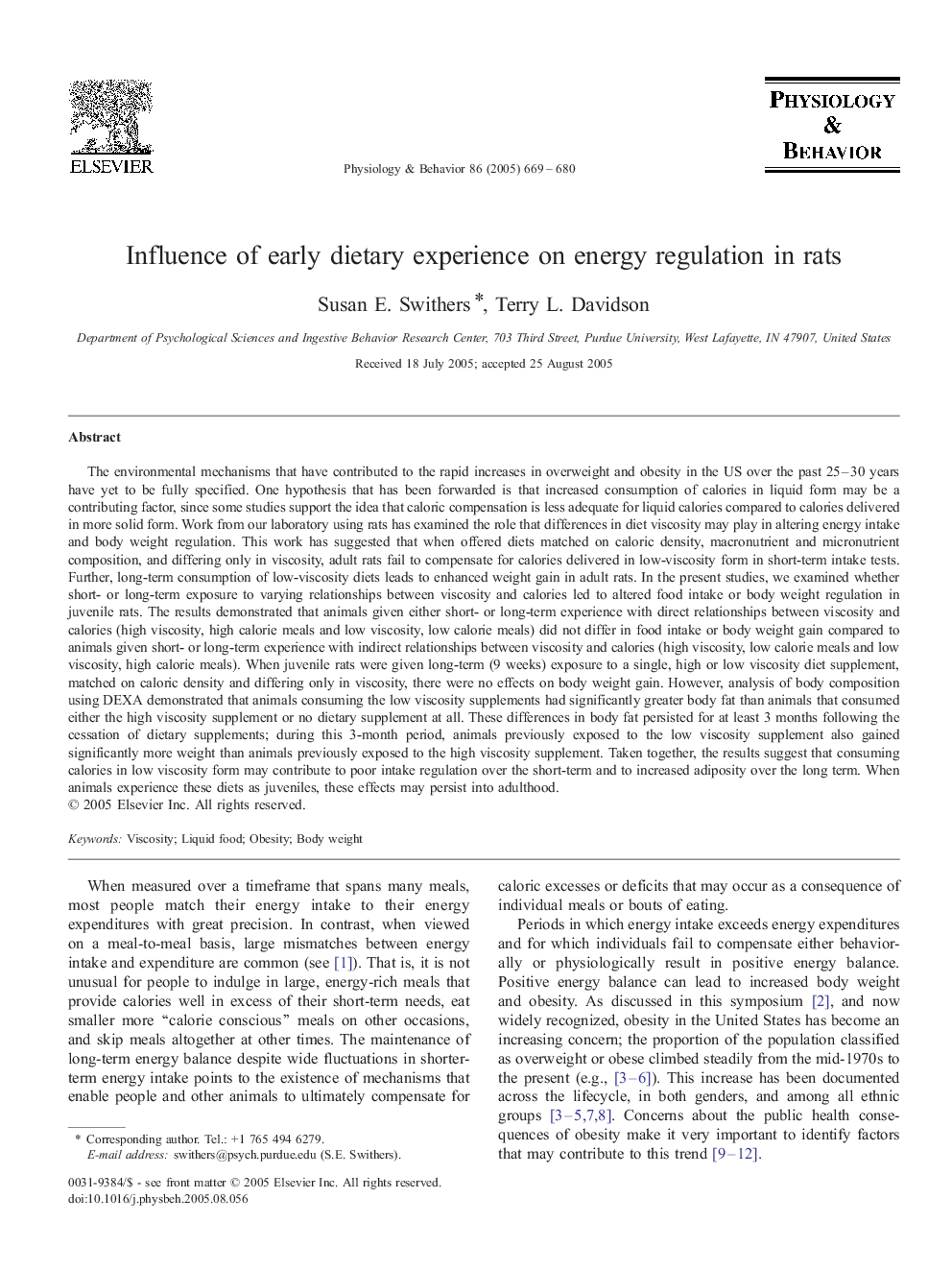| کد مقاله | کد نشریه | سال انتشار | مقاله انگلیسی | نسخه تمام متن |
|---|---|---|---|---|
| 9149890 | 1166441 | 2005 | 12 صفحه PDF | دانلود رایگان |
عنوان انگلیسی مقاله ISI
Influence of early dietary experience on energy regulation in rats
دانلود مقاله + سفارش ترجمه
دانلود مقاله ISI انگلیسی
رایگان برای ایرانیان
کلمات کلیدی
موضوعات مرتبط
علوم زیستی و بیوفناوری
بیوشیمی، ژنتیک و زیست شناسی مولکولی
فیزیولوژی
پیش نمایش صفحه اول مقاله

چکیده انگلیسی
The environmental mechanisms that have contributed to the rapid increases in overweight and obesity in the US over the past 25-30 years have yet to be fully specified. One hypothesis that has been forwarded is that increased consumption of calories in liquid form may be a contributing factor, since some studies support the idea that caloric compensation is less adequate for liquid calories compared to calories delivered in more solid form. Work from our laboratory using rats has examined the role that differences in diet viscosity may play in altering energy intake and body weight regulation. This work has suggested that when offered diets matched on caloric density, macronutrient and micronutrient composition, and differing only in viscosity, adult rats fail to compensate for calories delivered in low-viscosity form in short-term intake tests. Further, long-term consumption of low-viscosity diets leads to enhanced weight gain in adult rats. In the present studies, we examined whether short- or long-term exposure to varying relationships between viscosity and calories led to altered food intake or body weight regulation in juvenile rats. The results demonstrated that animals given either short- or long-term experience with direct relationships between viscosity and calories (high viscosity, high calorie meals and low viscosity, low calorie meals) did not differ in food intake or body weight gain compared to animals given short- or long-term experience with indirect relationships between viscosity and calories (high viscosity, low calorie meals and low viscosity, high calorie meals). When juvenile rats were given long-term (9 weeks) exposure to a single, high or low viscosity diet supplement, matched on caloric density and differing only in viscosity, there were no effects on body weight gain. However, analysis of body composition using DEXA demonstrated that animals consuming the low viscosity supplements had significantly greater body fat than animals that consumed either the high viscosity supplement or no dietary supplement at all. These differences in body fat persisted for at least 3 months following the cessation of dietary supplements; during this 3-month period, animals previously exposed to the low viscosity supplement also gained significantly more weight than animals previously exposed to the high viscosity supplement. Taken together, the results suggest that consuming calories in low viscosity form may contribute to poor intake regulation over the short-term and to increased adiposity over the long term. When animals experience these diets as juveniles, these effects may persist into adulthood.
ناشر
Database: Elsevier - ScienceDirect (ساینس دایرکت)
Journal: Physiology & Behavior - Volume 86, Issue 5, 15 December 2005, Pages 669-680
Journal: Physiology & Behavior - Volume 86, Issue 5, 15 December 2005, Pages 669-680
نویسندگان
Susan E. Swithers, Terry L. Davidson,